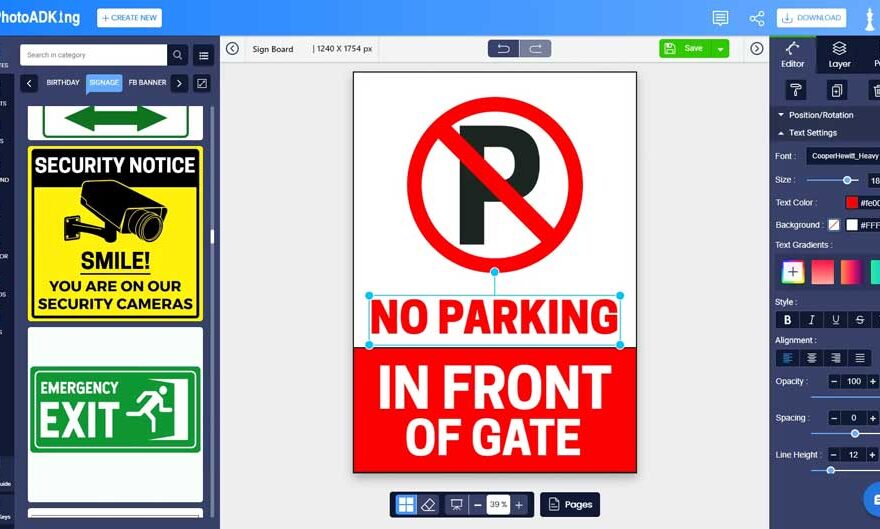What Is User-Generated Content Moderation and Why Is It Important?

Gone are the days when users were mere consumers in today’s digital marketplace. Nowadays, customer feedback and opinions influence others’ spending decisions. This is what user-generated content is all about.
User-generated content (UGC) includes reviews, social media posts, comments, and videos. Platforms like YouTube, Instagram, and TikTok allow users to boost a brand’s online presence. However, the surge in UGC calls for an urgent solution: content moderation services.
In this blog, you’ll understand the importance of content moderation in regulating UGC and the role of AI and human moderators. Let’s start!
What Is User-Generated Content Moderation?
User-generated content moderation reviews, filters, and manages UGC to align with platform policies. Harmful UGC can include hate speech, spam, and false information about a brand.
Since there are active users 24/7, implementing round-the-clock UGC moderation prevents harmful content from reaching wider audiences. Depending on the platform’s needs, they can use several types of content moderation:
-
Pre-moderation
In pre-moderation, moderation tools review content before publishing it. This method prevents users from viewing harmful content. However, it is inefficient because moderators must screen all user posts beforehand.
-
Post-moderation
Meanwhile, post-moderation solutions review content after users publish them. This is more helpful for platforms that thrive on real-time interactions. The drawback is that people can post any content, making it riskier.
-
Reactive Moderation
Reactive moderation relies on user reports to flag inappropriate content on platforms. Businesses often use this method alongside other moderation techniques. Combining these strategies will remove more unwanted UGC.
-
Automated Moderation
AI-powered tools can flag content automatically, helping human moderators. These filter texts, images, videos, and other types of UGC, reducing time and manual efforts.
-
Human Moderation
Massive online platforms like social media have content moderation teams that handle UGC even with heavy online traffic.
Why Is UGC Moderation Important For Businesses?
Content moderation services catering to UGC are crucial for businesses that want to expand their online reach. Here are some reasons why you should incorporate UGC moderation into your operations:
-
It protects users from harmful content.
User-generated content moderation prevents exposure to hate speech, harassment, violence, or explicit material. This fosters a positive user environment, resulting in more engagement and sales.
-
It ensures brand safety.
Protecting companies from reputational damage is crucial. A single negative comment can ruin a brand’s image, and fixing it could be costly if not impossible. Through UGC moderation, businesses can remove offensive or inappropriate content from online platforms.
-
It maintains platform integrity.
Content moderation also curbs misinformation, fake news, or spam that could hurt the platform’s integrity.
-
It guarantees legal and regulatory compliance.
UGC moderation ensures that brands adhere to local and international content laws. Otherwise, the company can suffer significant losses in legal fees and other penalties.
Key Challenges in UGC Moderation
Without a doubt, UGC moderation is essential. However, as platforms grow, so do the complexities of keeping UGC in check. Here are some of the main hurdles businesses face:
- Volume and Scale: With millions of published posts daily, content moderation is difficult at scale. Platforms need robust systems to keep up with the continuous flow of UGC.
- Context and Nuance Issues: AI moderation struggles with sarcasm, slang, or cultural references. This limitation usually results in inaccurate flagging or missed violations.
- Balancing Free Speech and Safety: Maintaining a safe platform while respecting users’ freedom of expression is always challenging.
- Evolving Threats: As moderation methods improve, malicious actors adapt, finding new ways to bypass filters with subtle or coded harmful content.
The Role of AI and Human Moderation
Businesses regulate UGC by combining AI and human moderators. AI tools can detect and filter large volumes of content while human reviewers offer contextual understanding. They are essential for nuanced or sensitive content.
AI Machine learning algorithms improve the accuracy of flagging harmful content through patterns. Meanwhile, human moderators handle complex cases that need judgment and empathy, such as bullying or harassment complaints.
Combining AI efficiency with human oversight ensures moderation systems flag harmful content quickly and accurately.
Conclusion: The Ongoing Need for UGC Moderation
User-generated content is a powerful tool for building community and boosting engagement. However, without proper moderation, businesses can suffer reputational damage and lose user trust. Through AI and human judgment, brands can effectively manage UGC, ensuring a safe, reliable, and positive online experience.


